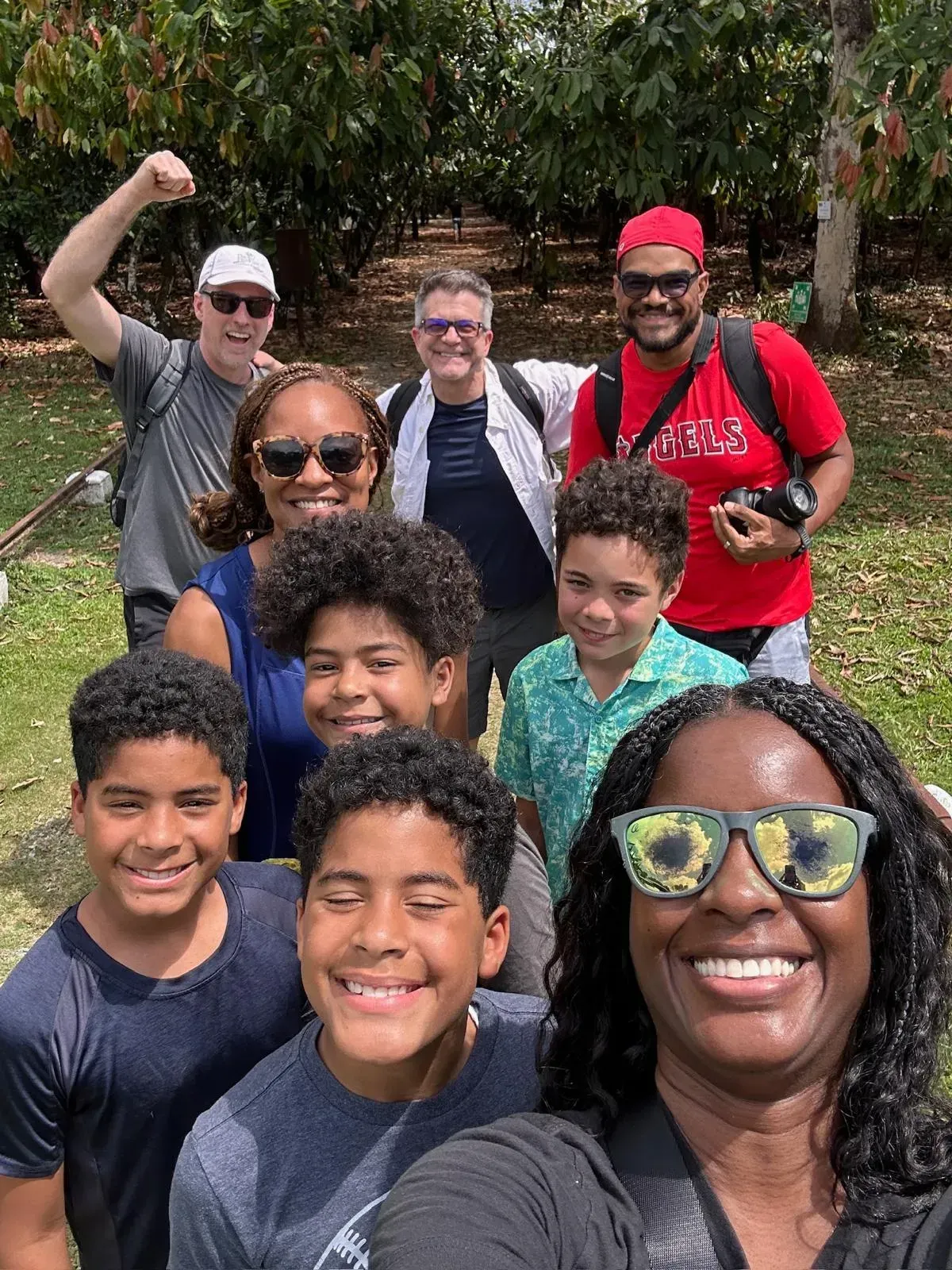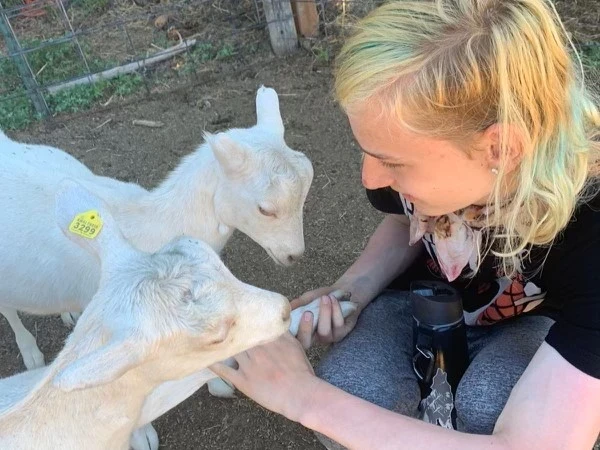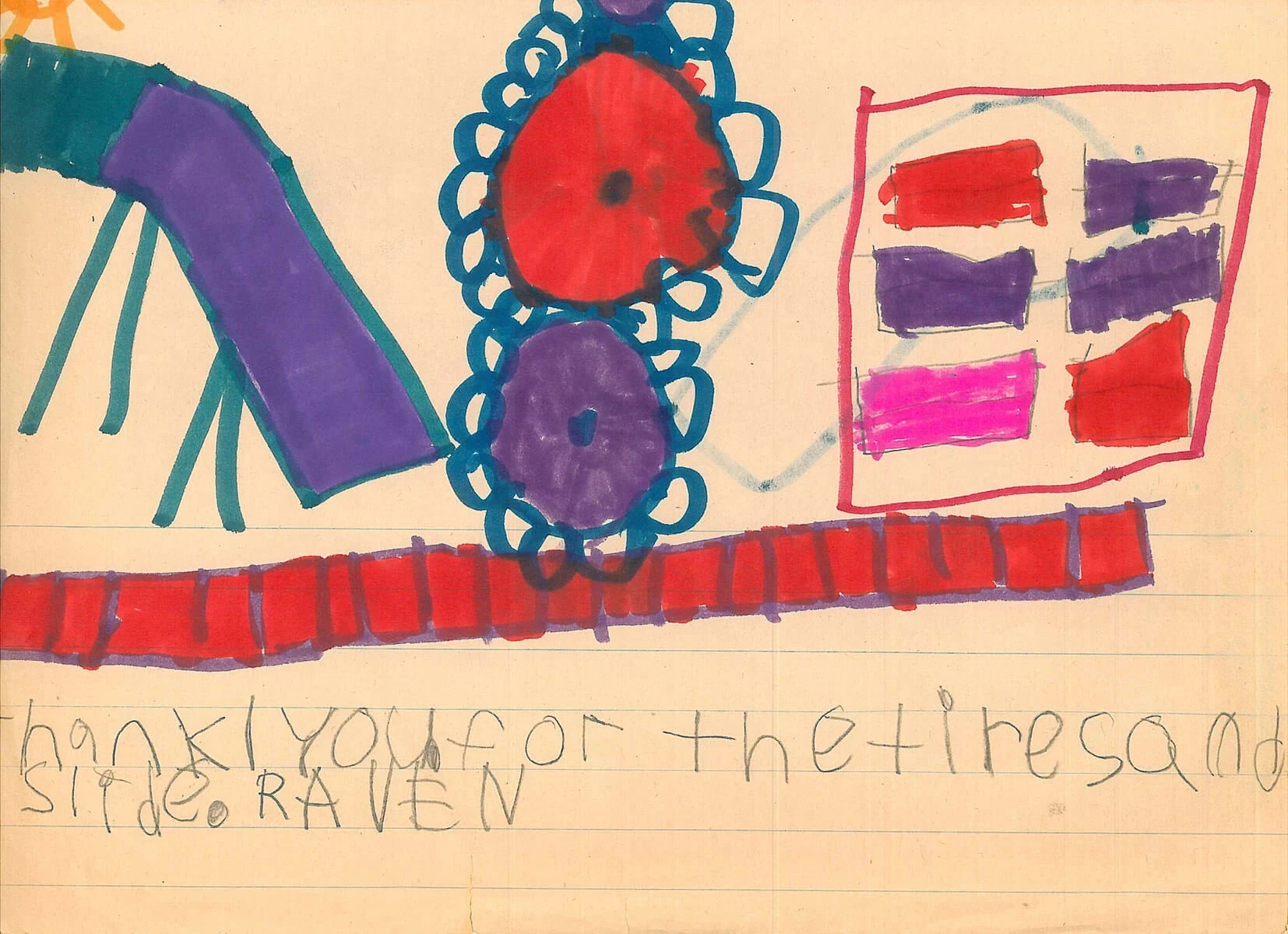By Owen Clarke
Service learning is very different from summer camp. How? Well, most Americans are familiar with the concept of summer camp. You head off to a frontcountry “camp” in the outdoors, usually staying in tents or cabins with other campers. You’ll eat in a mess hall. You might waterski or practice archery or fingerpaint or weave baskets. Maybe you’ll earn merit badges. Maybe you’ll tell ghost stories around a campfire at night. Of course, not all summer camps are the same, but this classic “summer camp experience” is one we’re all familiar with.

While there’s nothing wrong with summer camp, we believe that service learning is far more transformative and impactful.
Why Service Adventures are Different
Service learning is different from summer camp in a number of ways. For one, summer camp is typically in a regional location and is often nature-based. You may take a bus or drive a car, but most summer camps are in a set location that you’re familiar with, one that you return to several years in a row.
A service learning adventure might be local, too. But it could also be further afield in the United States, somewhere that expands cultural horizons, like the Montana Blackfeet Program—set on the Blackfeet Reservation in northwestern Montana. It could even be in a foreign country, such as Peru or the Dominican Republic, where participants can build on foreign language skills and experience deep cultural immersion. And while service learning isn’t necessarily nature-based, it will often include activities that deepen participants’ connection to the land & planet.
Summer camp experiences are often focused on outdoor adventure, activities and crafts, often with an emphasis on experiencing the great outdoors. While service learning adventures can include those elements—which round out the experience—the overall goal is to connect with the community and extend oneself through service.
Another difference is the dynamic between summer camp participants and service adventure participants. Summer camps typically have the same kids returning year after year, with a group of friends they know well from camp in the past. Campers know other campers, and can often form cliques or tight-knit social circles.
Service adventures, however, have most (if not all) participants going solo, venturing out on their own to spread their wings and make new friends. In fact, many programs don’t allow more than two kids who already know each other to attend the same program together, in order to foster a group dynamic that focuses on inclusivity and bonding around shared goals.
Belonging vs. Transformation
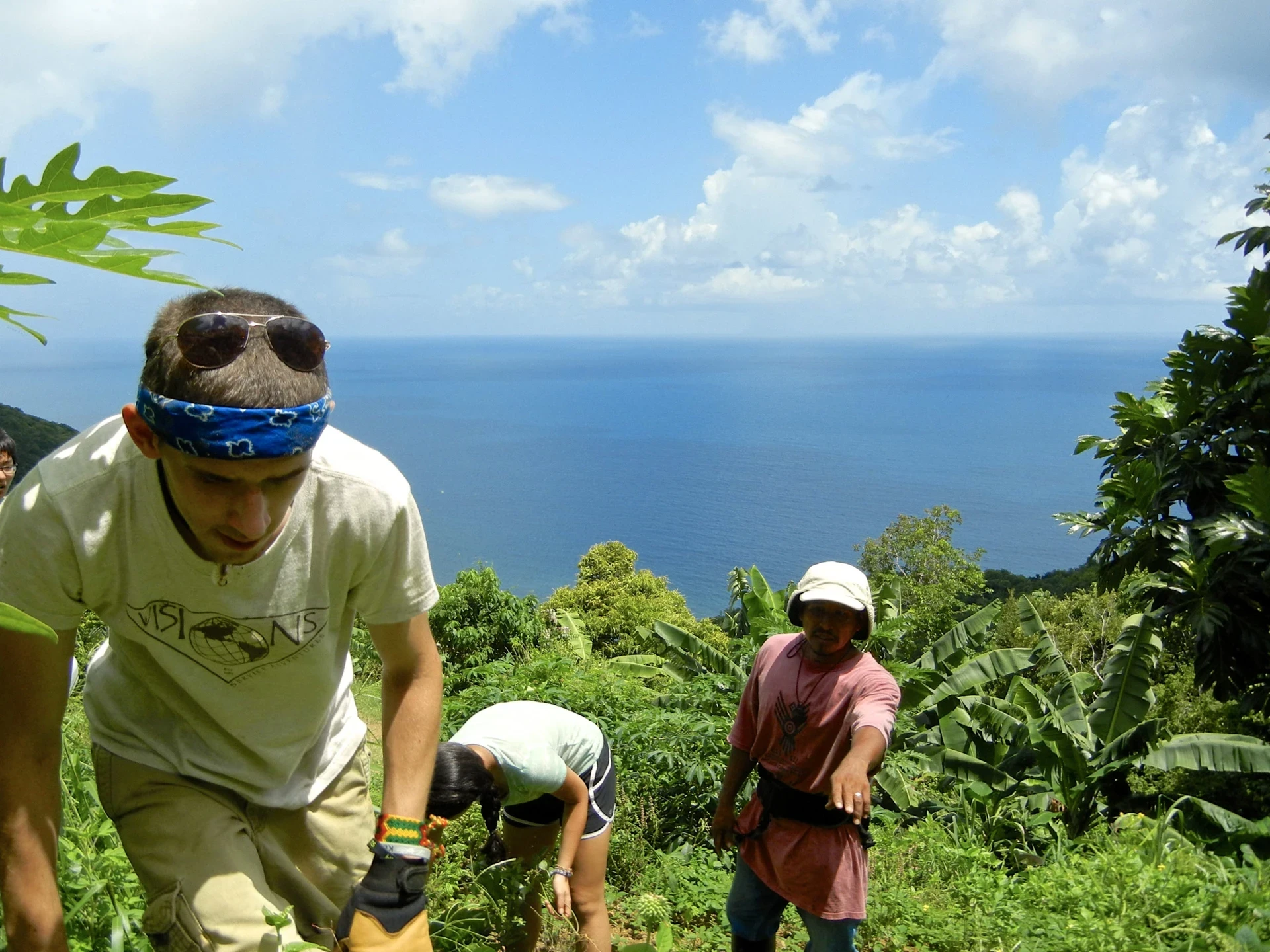
A beautiful backdrop for environmental projects at #VISIONSBVI. There are still a few spaces remaining for this summer. With that dynamic in mind, the experiences of service learning and summer camp differ philosophically, too. That’s because summer camp is usually about “belonging.” It’s about returning to a comforting, familiar place you know and love. Summer camps are filled with annual traditions and recurring activities, and the camp experience is often characterized by spending time with a stable, core group of “camp friends,” which may not change much each summer.
While VISIONS does have some “traditions,” like Circle—where participants gather to share insight—our service adventures aren’t about belonging, and they certainly aren’t about doing the same thing year after year. They’re about jumping into new experiences, about transformation and growth. Service learning acts as a catalyst for participants to move into a new chapter in life, with experiences that will have a ripple effect in terms of the way our participants view the world and participate in it.
“I loved how Circle was like ‘honesty hour,’ where you can say what’s on your mind,” said participant Lena M. “You could learn a lot about yourself, and comfortably sit in silence. I also loved the activities that we did in small groups. These activities … helped me discover who I truly am as a person.”
You might find in summer camp a safe space, a place where you can cozy up to familiar friends and take part in familiar activities and traditions. At VISIONS, you’ll find an experience that challenges you, pushes you out of your comfort zone and fosters lasting growth.
What Are Other Ways Service Learning is Different from Summer Camp?
There are myriad other ways service learning differs from a normal “summer camp” experience—and we like to think that they’re all for the better. We’ll go through a few of them below.
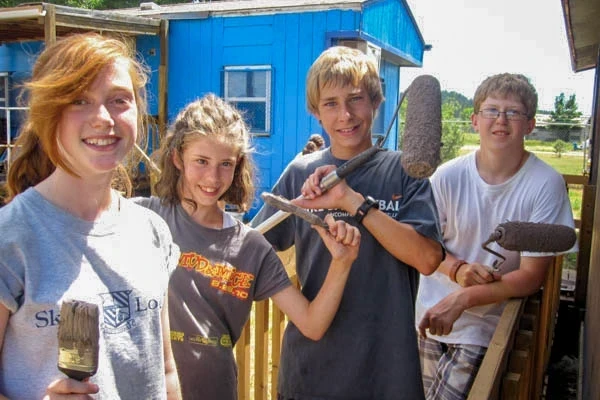
Unplug from Technology
At VISIONS, unplugging from technology is a core part of our program experience. Modern summer camps are often tech-free, too, but VISIONS isn’t just about making a choice to leave smartphones and other electronic gadgets at home, it’s about actively learning to enrich our lived experiences without them.
As we’ve written in other blogs, we’ve discovered that leaving the phones at home helps our teenage participants begin to genuinely connect with new friends, not to mention community partners and their surroundings. We’ve also seen that high-tech gadgets often highlight the economic gap between us and local residents, who often have fewer material resources than us.
Given that one of our key program goals is to connect deeper with our surroundings, it’s easy to see why technology can be a major hindrance.
In addition, we see that our no-tech policy often lasts for participants long after they return home from their service adventure. It’s quite common for past participants to call (or return next year) and let us know that they’ve deleted apps and social media profiles or set screen-time limits on their phones and laptops. Many parents echo this truth. “[My daughter] is maintaining the values that were instilled in her during the program,” wrote VISIONS participant mom Kathy T. “As of today the TV has not been turned on at our house and the phone time has been limited.”
To learn more about our tech-free policies—and why we value them so much—check out our blog “No Phone? No Problem.”
Note: Even though our programs are tech-free, we post photos a few times a week for parents and loved ones to keep up to date on our adventures!
Cook Your Own Meals
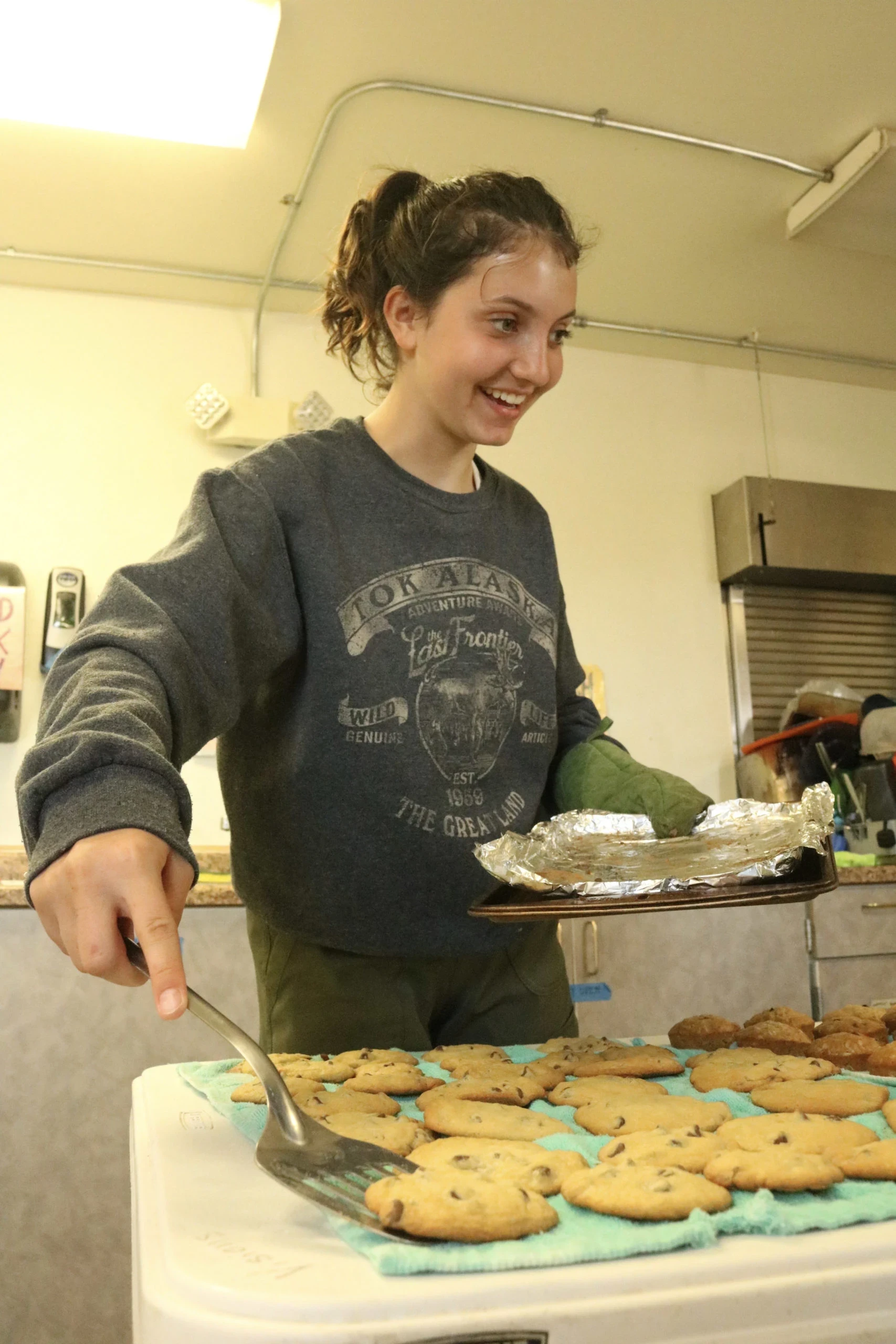
Most summer camps have dedicated cooks who make all your meals. On service adventures, however, participants typically take turns making meals, learning how to prepare new dishes and sharing knowledge with other participants.
During our programs, participants will be part of a rotating “homebase crew,” along with other participants and a leader. These crews alternate making breakfasts & lunches, which expands the program learning experience and also “serving” our immediate community in the process. These cooking experiences don’t just involve preparing food. Crews also often visit local markets to source food for upcoming meals, deepening our cultural immersion. Meanwhile, dinners are made by a local cook, who is often also like a “house mom,” so we still get a taste of delicious, expertly-prepared local cuisine.
Take Responsibility
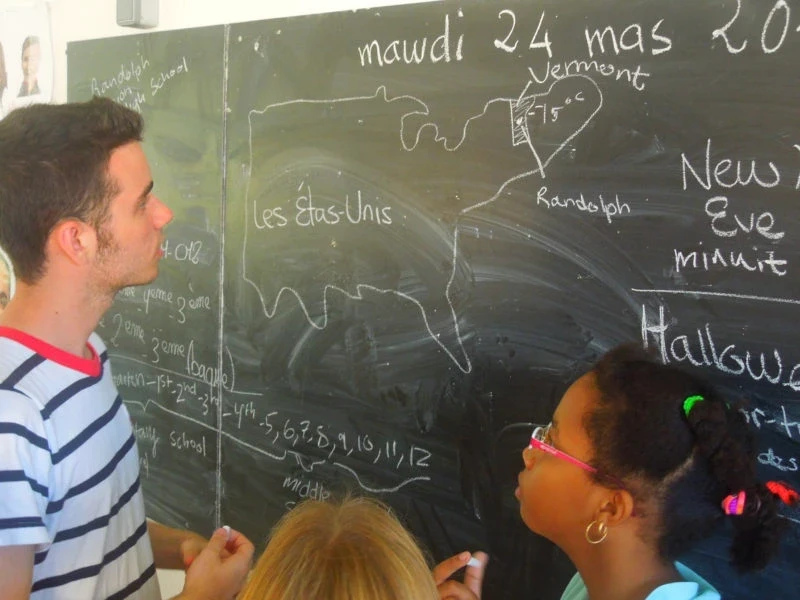
The last major difference between the service learning at VISIONS and your average summer camp is the amount of responsibility placed on the participant. As we mentioned above, camps are about belonging and service learning is about transformation. “I learned more about myself in those four weeks than I had in sixteen years,” said VISIONS participant Brianna H.
With many of our participants, service learning is the “next step,” a launchpad for summer campers who want to stretch out of their comfort zones. It’s like taking the traditional, sleepaway summer camp experience to the next level. So at VISIONS, we have plenty of participants who have gone to summer camp for years and want to push their limits. But we also get many participants who have never done a program away from home! Both are perfectly fine ways to dive into a VISIONS adventure.
Whether you have a long summer camp background or it’s your first time away from home isn’t important. The important thing—and the biggest difference between service learning and summer camp—is that participants are ready to take responsibility and push themselves, both to put down roots and grow to new heights.



